 Talia's Codebook for Mathletes by Marissa Moss
Talia's Codebook for Mathletes by Marissa Moss Published by Walker Books US on June 13, 2023
Pages: 240
Genres: Juvenile Fiction / Action & Adventure / General
Format: Graphic Novel
Goodreads

A graphic novel inspired by the author’s short-lived experience being the only female mathlete in her middle school. Through Talia, Moss imagines the path she might have taken had she not given up after one math meet. The book is set in the present day but is layered with scenes that must have been pulled from the author’s memory of the early ’70’s, feeling jarringly outdated.
The story starts with Talia’s best friend, Dash, explaining to her that they can no longer be friends while they are at school, because he is getting teased. She is crushed. They both earn a spot on math team, but she’s the only girl. The other boys are mean or ignore her, and Dash pretends not to be her friend. The male coach makes it clear he doesn’t think she belongs there.
In reaction, she recruits her own math team, made up of all girls. This is a positive idea, though another girl steps in to lead as team captain without any discussion, and this makes Talia upset (though she never says anything – which feels odd given how big a deal it was for her to create a new team, and particularly given its roots in female empowerment). At the first meet, an anxiety-ridden Talia makes a mistake and does not answer her question correctly, but despite this the girl’s team wins – even beating the boy’s team from their own school. Bizarrely, Talia’s parents, instead of being excited for her and all she has accomplished, are angry with her for her for making the mistake.
In the end Dash feels he can be friends with Talia again because he has essentially gotten permission from his new male friends that it’s okay, now that her team won. He asks, “why do we have to be just one thing – like a boy or girl?” which, if written differently could have been a clever math binary joke, but instead negatively highlights a gender binary view that is outdated and exclusionist in a book published in 2023.
Overall, the story pulled in too many outdated sensibilities, threw them into a big pot, and resolved only one thing – Talia and Dash fixing their friendship, which had only been broken over cringy “boy-girl avoidance” reason to begin with. The coach was not called out for misogynistic behavior, the parents were not called out for their unreasonable and hurtful expectations, Talia never had a frank conversation with any of the characters (coach, mother, father, Dash, team captain) who made her feel unworthy, and the openly sexist expectations set out by some of the worst characters were never addressed or corrected. All this makes it hard to recommend despite its potential.
Positives: quirky format, expressive illustrations, some nicely developed characters. Two stars.
Reviewed by: Jenny Martinez Nocito, Maine State Library, Augusta
 Money Out Loud: All the Financial Stuff No One Taught Us by
Money Out Loud: All the Financial Stuff No One Taught Us by 
 Liar's Beach by
Liar's Beach by 
 Turtles of the Midnight Moon by
Turtles of the Midnight Moon by 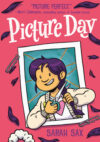 Picture Day: (A Graphic Novel) (The Brinkley Yearbooks) by
Picture Day: (A Graphic Novel) (The Brinkley Yearbooks) by 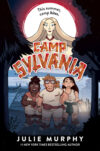 Camp Sylvania by
Camp Sylvania by  From Shore to Ocean Floor: The Human Journey to the Deep by
From Shore to Ocean Floor: The Human Journey to the Deep by 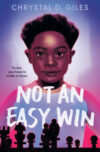 Not an Easy Win by
Not an Easy Win by 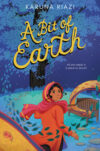 A Bit of Earth by
A Bit of Earth by 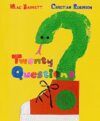 Twenty Questions by
Twenty Questions by